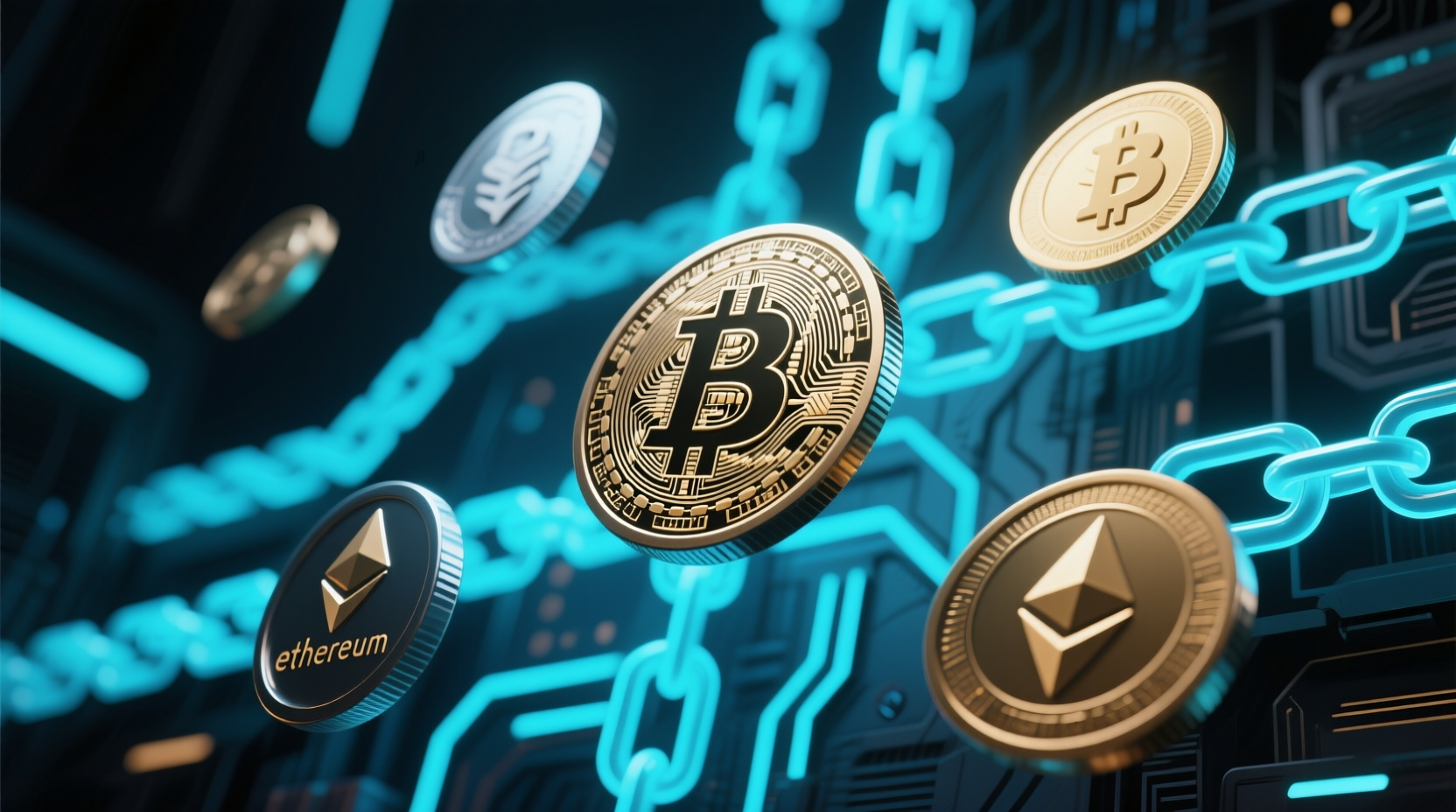Key points:
- Definition and Structure: Coins are native to their own blockchains (like Bitcoin), while tokens are built on top of existing blockchains (like SHIB on Ethereum).
- Purpose and Use: Coins act as general money, store value, and secure networks, whereas tokens serve specialized roles such as accessing services, voting, gaming, or representing NFTs.
- Practical Implications: Knowing the difference helps with security, investing, wallet management, and using DeFi applications correctly.
- Importance for Crypto Users: Understanding coins vs tokens prevents confusion, boosts confidence, and provides a clearer view of the Web3 ecosystem.
If you’ve ever dipped a toe into the world of crypto, you’ve probably stumbled across the debate of coins vs tokens, and maybe wondered why everyone seems to use the terms interchangeably. Spoiler: they’re not the same thing, even if people sometimes toss them around like synonyms.
The confusion is totally normal. After all, both live on blockchains, both have value, and both can be traded. But here’s the catch: their roles, how they’re created, and what they’re meant to do are very different.
What Are Coins?
When people start asking about coins vs. tokens, the “coin” part usually makes the most sense. Coins are the OGs of the crypto world. Think Bitcoin and Ethereum, digital assets that live on their very own blockchains. If the blockchain is the country, the coin is the official currency.
Coins aren’t just whipped up out of thin air. They’re created through processes like mining (where computers solve puzzles to add new blocks to the chain) or staking (where holders lock up their coins to help secure the network and earn rewards). In both cases, the network runs smoothly because people are putting in work or resources to keep it safe.
So what do you actually do with coins? A lot, actually:
- Payments: Send coins like Bitcoin quickly across borders, no banks required
- Value Storage: Hold them long-term, similar to storing gold, to preserve wealth
- Network Security: Help power the blockchain by securing the network and validating transactions
Coins are the foundation that makes everything else in crypto possible. Without them, the whole coins vs. tokens conversation wouldn’t even exist.
What Are Tokens?
If coins are the official money of a blockchain, tokens are more like special passes that live on top of an existing blockchain. When people talk about coins vs. tokens, tokens are usually the trickier part to wrap your head around. Unlike coins, tokens don’t have their own blockchain. Instead, they piggyback on platforms like Ethereum or Solana, using those networks to exist and operate.
Related: Crypto Titans Bunker Down Now: Vitalik’s Austerity Vow, Binance $1B Bitcoin Shield
Tokens come in different flavors depending on what they do:
- Utility Tokens: Give you access to a product or service, like paying fees on a platform or unlocking features
- Governance Tokens: Let holders vote on decisions in decentralized organizations, like shaping the future of a project
- NFTs (Non-Fungible Tokens): Unique digital collectibles, art, or in-game items that you can truly own
- Stablecoins: Pegged to real-world assets like the US dollar to keep value steady
So what can you actually do with tokens? A lot of things beyond just storing value:
- Access Services: Use tokens to interact with apps or pay for digital services
- DeFi Participation: Lend, borrow, or earn rewards in decentralized finance platforms
- Gaming: Own in-game items that can be traded or sold
- Voting: Influence decisions in DAOs and other community-driven projects
Tokens are the versatile side of crypto, letting people do all sorts of creative and practical things on top of existing blockchains.
Coins vs Tokens: The Key Differences
By now, you probably have a sense of what coins and tokens are, but the real question is how to tell them apart. The coins vs tokens debate comes down to a few key differences that make each type unique.
- Ownership of the Blockchain: Coins live on their own blockchains, like Bitcoin or Ethereum. Tokens, on the other hand, are built on top of existing blockchains, borrowing their infrastructure to function.
- Function and Purpose: Coins usually act as general money, they can be spent, saved, or used to secure the network. Tokens are more specialized. They can give access to services, let you vote in governance, or even represent unique digital items like NFTs.
- Examples Side by Side: Bitcoin is the classic coin, native to its blockchain. SHIB, on the other hand, is a token built on Ethereum, used for various community and decentralized finance (DeFi) activities.
Think of it this way: coins are like a country’s currency, reliable and widely accepted. Tokens are like coupons, membership cards, or tickets, each serving a specific purpose while depending on the larger system around them. Understanding this distinction makes navigating crypto much easier, whether you are trading, investing, or just exploring the space.
Related: Crypto Industry Now Mobilizes Against Perceived Quantum Threat
Why This Difference Matters
Understanding coins vs tokens is more than just a trivia question. Knowing the difference can actually make your crypto life a lot smoother and safer.
- Security and Risk Considerations: Coins often carry different risks than tokens because they operate on their own blockchains. Tokens rely on the security of another blockchain, so knowing the type helps you understand potential vulnerabilities.
- Investing and Trading Implications: Coins and tokens behave differently in markets. Coins might be seen as long-term stores of value, while tokens can have very specific use cases that influence their price. Recognizing the difference helps you make smarter investment decisions.
- Practical Use: Coins are often easier to spend or store, while tokens unlock services, governance rights, or in-game items. Knowing which is which helps you manage wallets, interact with DeFi apps, or send crypto to friends without mistakes.
- Avoiding Confusion: Calling SHIB a coin when it is actually a token may seem small, but it can create misunderstandings about what you can do with it and how it works. Understanding coins vs tokens keeps you confident in your crypto knowledge.
In short, getting this distinction right helps you navigate the crypto space with clarity, security, and a bit more confidence.
Closing Thoughts
The coins vs. tokens debate may seem tricky at first, but here’s the good news: both are essential pieces of the Web3 puzzle. Coins provide the backbone of blockchain networks, while tokens unlock all sorts of creative, practical, and financial possibilities on top of them.
The final takeaway is simple. Understanding the difference between coins and tokens gives you a clearer view of the crypto world. It helps you make smarter decisions, whether you are trading, exploring DeFi, collecting NFTs, or just keeping up with the latest crypto trends. A little knowledge goes a long way in making your journey through crypto smoother, safer, and more fun.












